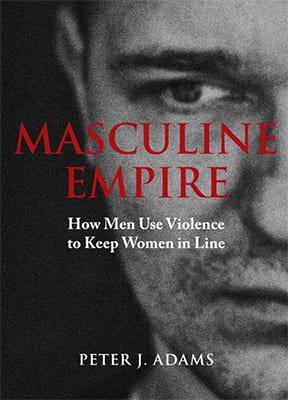Peter J. Adams Book Description
Masculine Empire: How Men Use Violence to Keep Women in Line
Auckland: Dunmore Publishing, 2012 (317 pages) ISBN: 9781877399695
Content
This book – through having the reader ‘eavesdrop’ on the conversations of five ‘kiwi’ men who meet regularly in a sports bar and talk about their relationships – provides a unique insight into the ‘masculine empire’ of superiority and entitlement. It shows how men approach intimate relationships, their allegiance to their like-minded ‘mates’, and the role these men play in bolstering each other’s need to be in charge of their women and their homes, capturing women in oppressive situations. It flips explanations for violence from what is happening in the minds of individual ‘bad’ men to a broader exploration of the social world of men. It illustrates what can happen to both men and women when male oppression goes too far and looks at options men might take for turning away from their controlling and violent behaviour.
Prof Don Conway-Long (Webster University, Missouri, 2012
It is an unusual work. I have never read anything quite like it… The way he has taken the ongoing conversation of this group and shaped it into a critical assessment of the discourses, rationalizations, misunderstandings, and emotional scars of men’s lives, including ways that some men can and do change their understanding of their entitlement to domination and control in the family, makes this work a helpful contribution to the literature on men’s violence.” (Review in Men & Masculinities 16 (5). See full review
Dr Elena Spasovska (University of New South Wales, 2014)
I thank Peter Adams for being part of the fight against gender-based violence and for reaching out to men on such an important issue… This book can be useful for psychologists and social workers who work with perpetrators of domestic violence and with victims of such violence, and for academics and activists who are involved with or interested in gender-based violence. In addition, I am convinced that this book is a good read for the general population as well, as it will serve as an invitation to both men and women to reflect on the ways they position themselves in intimate relationships and hopefully produce an awakening for both. (Review in Feminism & Psychology, 24(4), 562-6). See full review
